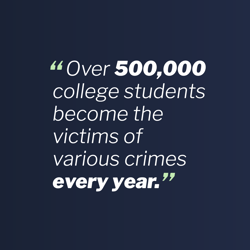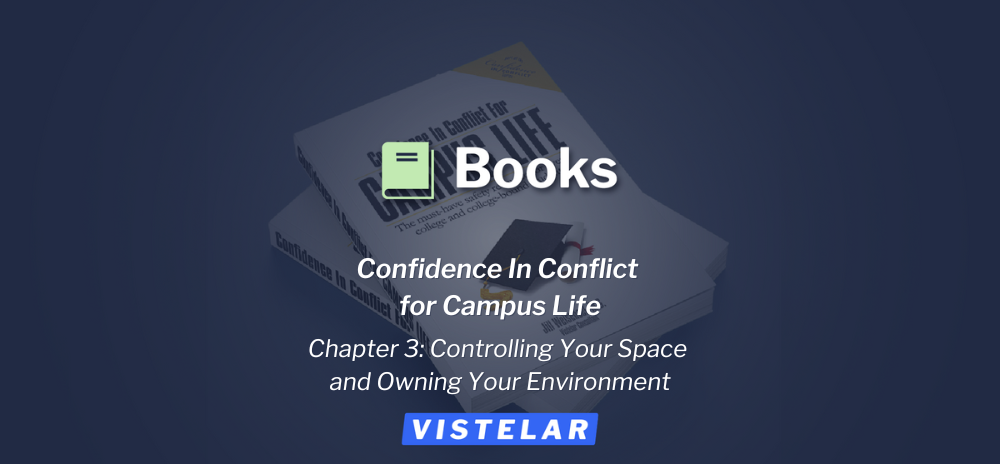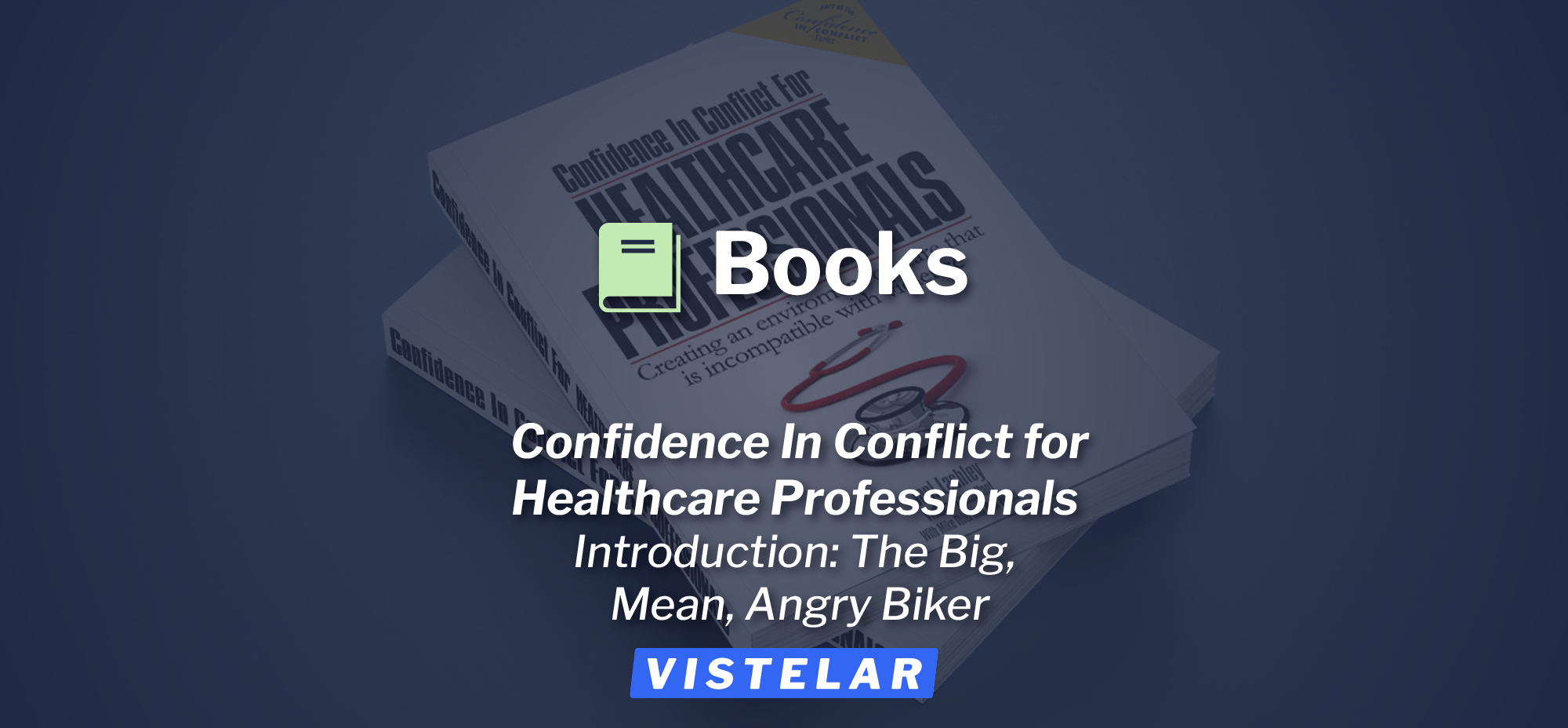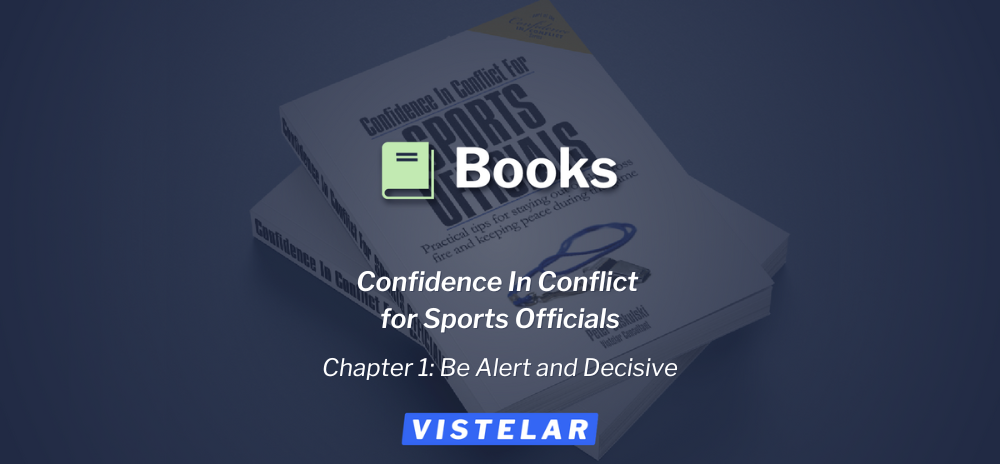Enjoy this excerpt from one of our published books.
Chapter 1
Your First Class - Personal Situational Awareness 101
After an awesome summer break filled with concerts and days at the beach, it was finally Amanda's college move-in day. As her parents pulled up in front of her dorm, she was surprised at just how many people were running around like crazy trying to unload books, food, clothes, and futons. Everybody seemed to have so much "new stuff." There were new flat screen TVs and mini-fridges, and boxes and boxes of new laptops. She was amazed when she looked up and saw a pile of someone's stuff left unattended. "Look mom, that's a
brand new Macbook Pro. That's got to be like $1,800! I can't believe someone would just walk away from it like that.” Amanda’s mom looked back at her and smiled. “Don’t worry honey; I’m sure there’s hardly any crime here.”
The belief that there's "no crime" on a college campus is just as misguided as the belief that bad things won't happen to good people. In fact, statistics show that over 500,000 college students become the victims of various crimes every year. We also know that bad things, unfortunate things, and accidents can happen to anyone at any time. But that doesn't mean you have to just sit around and wait for something bad to happen. Those of us in law enforcement receive a substantial amount of training pertaining to personal awareness, proxemic management, and threat assessment, so that we can put ourselves in the best position possible and make the safest decisions possible, without getting hurt while trying to help people. Most people I know that work in law enforcement have one wish for people who have no law enforcement experience: they want you to think more like a cop.
So what does that mean exactly? It means that you need to shift your thinking about what makes an environment safe, and you need training on how to see and evaluate your space in a new way. It means taking a different perspective about what could be a potential threat. It also requires people to shift their mindset from "It will never happen to me," to "I'm going to do everything possible to reduce my risk of that happening to me." Finally, it also means knowing that when bad things do happen, you will be prepared and capable of handling them in a way that lessons the likelihood of harm to you and others.
Now I'm not suggesting you become paranoid in thinking that everything and everyone poses a potential threat to you and your friends, but I am encouraging you to take ownership of your personal safety. I'm encouraging you to learn the skills you need to be mindful, not fearful.
So that brings me to my first question: Who’s responsible for maintaining your personal safety?
Is it your parents? Is it your roommate? Did you say the police or campus security? If you answered yes to any one of those questions, you'd be wrong. The number one person responsible for maintaining your personal safety is-you! You are responsible for your own space and your emotional and physical well-being within it. You also play a part in creating an environment that promotes a safe and healthy environment for everyone to learn and live.
Over the course of the next several chapters I will present to you the skills you need to know in order to take your personal safety into your own hands, so that you will have a pre-planned and practiced response available to you when you need it the most. And while no one skill or set of strategies is guaranteed to keep you safe 100% of the time, you can rest assured knowing that if you learn these skills and are mindful of these strategies, you will be much less likely to become the victim of a crime. In other words, you will be better equipped to identify and avoid situations whereas you may be more vulnerable to crime. Regardless of what strategies you employ, you may still find yourself the victim of a crime. Please remember, it is not your fault. The only person who can truly prevent a crime from happening is the person committing it!
Second question: If by some chance you would get into a situation that would require you to immediately react to save yourself or someone else, do you believe that you would do the right thing?
If you answered yes to this question then you've probably found yourself in some type of dangerous situation like this before, or you've had self-defense or martial arts training. Some of you might have even said yes and thought, "Yeah, because my dad's a cop and he told me what to do." If you answered no, it's time to start learning the skills you need to keep yourself safe. Either way, read on. This book will help you understand what you need to do to respond appropriately.
It All Starts With When-Then Thinking
Even if you've never found yourself in a life threatening situation requiring split second decision making to save.png?width=383&name=Vistelar-Blog-Call-Out-Campus-Life%20(2).png) you or someone else, you can still prepare and "practice" for the worst by practicing "when-then thinking." The concept of when-then thinking was developed by nationally known and respected law enforcement trainer "Coach" Bob Lindsey. When-then thinking is the process of visualizing and thinking through what you would do in a given situation, even if it's a situation that you've never been in before. In other words, when-then thinking is the skill of putting yourself into different types of scenarios so you can think through how you'd react to them before they happen. This is an important skill to have, because it isn't really a matter of if something bad will happen; it's a matter of when.
you or someone else, you can still prepare and "practice" for the worst by practicing "when-then thinking." The concept of when-then thinking was developed by nationally known and respected law enforcement trainer "Coach" Bob Lindsey. When-then thinking is the process of visualizing and thinking through what you would do in a given situation, even if it's a situation that you've never been in before. In other words, when-then thinking is the skill of putting yourself into different types of scenarios so you can think through how you'd react to them before they happen. This is an important skill to have, because it isn't really a matter of if something bad will happen; it's a matter of when.
Young adults often experience something called "perceived invulnerability." Perceived invulnerability is the (false) belief that since nothing bad has ever happened to you; that nothing bad ever will. It is imperative to get past feeling "bulletproof," and recognize that there are in fact situations and different environmental variables that will make you more susceptible and vulnerable to crime. Otherwise, you will be caught by surprise when a bad situation does occur.
If you've never practiced when-then thinking, it can take a little getting used to, but the concept is actually quite simple. To practice, think of a situation in your life that has gone badly, or think of something bad that has happened to a friend. Then, imagine that it did happen, or that it was happening to you right now, and try to think about exactly how you would react.
My first experience with when-then thinking came at a young age. When I was five years old my mom dressed me up for a wedding. She curled my hair, put on my dress, and put me in some very fimsy bottom pink shoes with "cute" little bows on them. After my mom got dressed to leave, she came back into my room and noticed that I was sitting on my bed, very angry with my arms folded. I had also thrown the "cute" useless shoes across my room and onto the foor. My mom, extremely confused, asked me why I had thrown my shoes. I then, confidently as ever, walked across my room, picked up my favorite pair of Nike running shoes, and put them on. I said, "Mom. No. How would you expect me to run out of the building in case there was a fire?" From that moment on, my mom never, ever again asked me to wear impractical footwear.
Here's the point: At the wee age of five I was already becoming a tactical thinker. I was thinking about what could possibly happen while I was at the wedding. And while the possibility of a fire engulfing the church was slim to none, I still wanted to make sure I had the best chance of running out of there if my life depended on it. Again, when-then thinking is not meant to be catastrophic, and it's not meant to make you paranoid. It is meant to put you in the best and safest position possible so that you can appropriately respond in the case of an emergency. Notice I didn't say "react" in the case of an emergency. This is an important point. When you find yourself in a difficult situation (possibly even life threatening) you want to have a pre-planned, practiced, response in mind. If you have a plan, you will be able to respond appropriately, rather than react irrationally in a panic. Having pre-planned "actions" in mind will help you get through a frightening situation.
Maybe I Should Move That
Another drill for practicing when-then thinking is called, "Maybe I Should Move That." Don't laugh! It is actually quite eye-opening and effective. Many accidents and mishaps could be prevented if people would merely move something. That something could be an object, or that something could be yourself. We will talk more about "moving yourself " in Chapter Three. For now, I'd like you to think about how many cell phones you have seen broken. How many of those accidentally broken phones could have been prevented if they would have been moved away from the edge of the table? Or if the person texting on it would have moved themselves away from a door that was abruptly opened?
I had the opportunity to practice "Maybe I Should Move That" a short time ago, when I was loading my truck before driving to Illinois for a party. I didn't want to wear dress clothes all day, so I packed them in a bag, and set the bag on the back seat. Now remember, and this is important, that I only packed one outfit (a true when-then thinker would have packed a second set of clothes- just in case). I then loaded the snacks and appetizers that I was bringing to the party. As soon as I set the bag of snacks (which included a big jar of salsa and queso dip) on top of my bag of dress clothes, I thought to myself, "Oh man, maybe I should move that. That would be horrible if it spilled on my clothes while driving." So if you're ever struggling to think through how actions will play out (when-then thinking), try to think about what the result would be if something wouldn't have been moved.
“The most underutilized campus safety resource. is you!”


.png)





